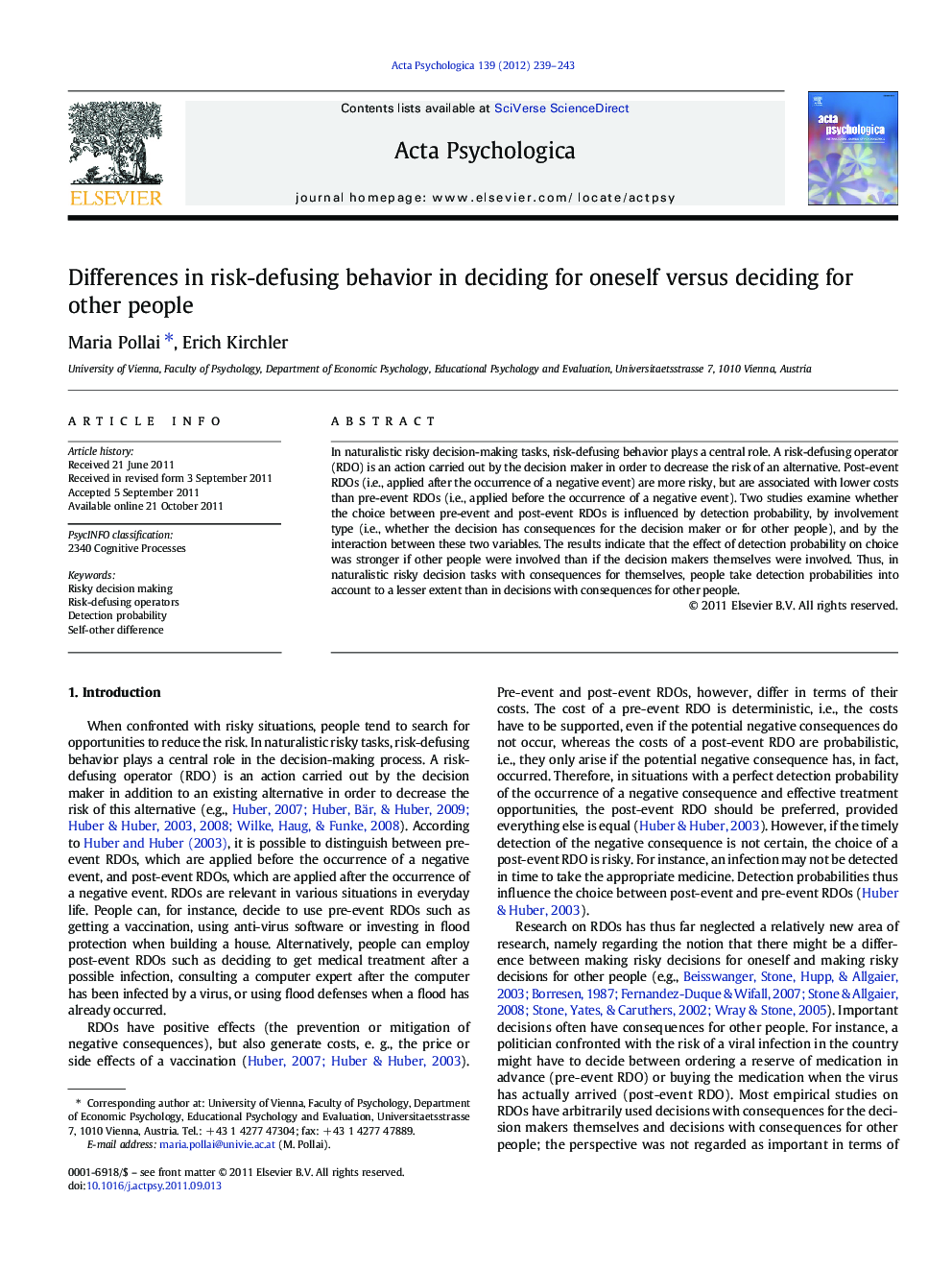| Article ID | Journal | Published Year | Pages | File Type |
|---|---|---|---|---|
| 920113 | Acta Psychologica | 2012 | 5 Pages |
In naturalistic risky decision-making tasks, risk-defusing behavior plays a central role. A risk-defusing operator (RDO) is an action carried out by the decision maker in order to decrease the risk of an alternative. Post-event RDOs (i.e., applied after the occurrence of a negative event) are more risky, but are associated with lower costs than pre-event RDOs (i.e., applied before the occurrence of a negative event). Two studies examine whether the choice between pre-event and post-event RDOs is influenced by detection probability, by involvement type (i.e., whether the decision has consequences for the decision maker or for other people), and by the interaction between these two variables. The results indicate that the effect of detection probability on choice was stronger if other people were involved than if the decision makers themselves were involved. Thus, in naturalistic risky decision tasks with consequences for themselves, people take detection probabilities into account to a lesser extent than in decisions with consequences for other people.
► We examined influencing factors on the choice between pre-event and post-event RDOs. ► We examined the effect of detection probability and self-other differences. ► In decisions with consequences for themselves, people account less for probabilities.
